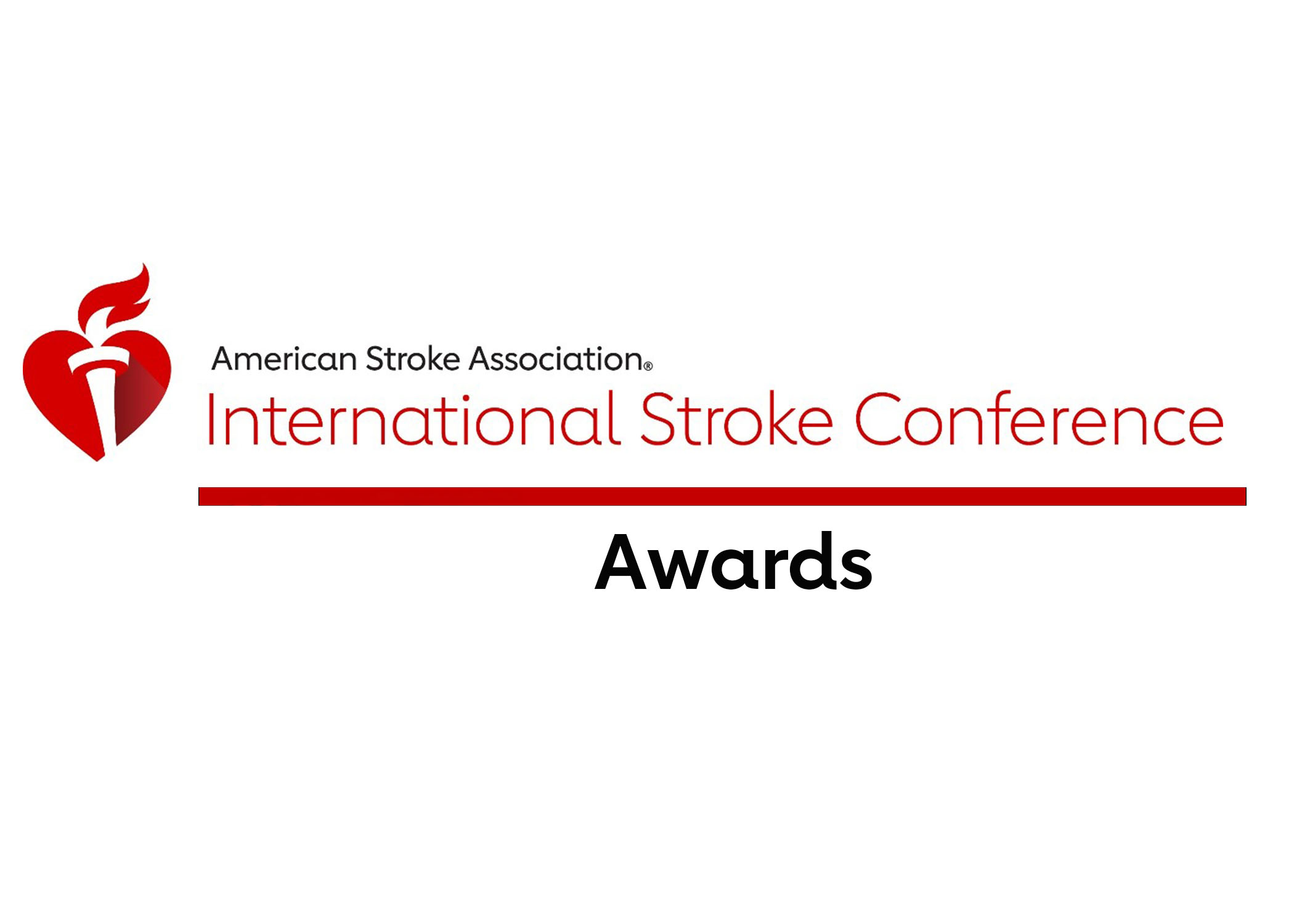10 leading stroke scientists to receive American Stroke Association honors, including the Ralph L. Sacco Outstanding Stroke Research Mentor Award
[ad_1]
 Embargoed until 8 a.m. CT/9 a.m. ET, Tuesday, February 7, 2023
Embargoed until 8 a.m. CT/9 a.m. ET, Tuesday, February 7, 2023
(NewMediaWire) – February 07, 2023 – DALLAS – Ten scientists leading the way in stroke research will be recognized for their exceptional achievements during the American Stroke Association’s International Stroke Conference 2023, to be held in person in Dallas and virtually Feb. 7-10. The world’s premier meeting for researchers and clinicians is dedicated to the science of stroke and brain health.
The illustrious group of awardees includes four groundbreaking scientists who have devoted their careers to stroke research, including the recipient of the newly renamed Ralph L. Sacco Outstanding Stroke Research Mentor Award. The award was renamed to honor Dr. Sacco, a past president of the American Heart Association and American Stroke Association, who passed away on Jan. 17. The award honors Dr. Sacco’s exceptional contributions to the field of stroke research and to the Association, as well as his instrumental role as a leading stroke mentor throughout his career. Six more scientists will be honored for their notable new research.
The honorees are:
- Cheryl Bushnell, M.D., M.H.S., FAHA, Wake Forest University School of Medicine in Winston Salem, North Carolina, will receive the Edgar J. Kenton III Lecture Award.
- Cheryl Bushnell, M.D., M.H.S., FAHA, Wake Forest University School of Medicine in Winston Salem, North Carolina, also will receive the Ralph L. Sacco Outstanding Stroke Research Mentor Award.
- Zena Vexler, Ph.D., University California San Francisco, Weill Institute for Neurosciences in San Francisco, will be awarded the Thomas Willis Lecture Award.
- George Howard, Dr.P.H., University of Alabama at Birmingham School of Public Health, Birmingham, Alabama, will receive the David G. Sherman Lecture Award.
- José Biller, M.D., FAHA, Loyola University Chicago Stritch School of Medicine, Loyola University Health System in Maywood, Illinois, will be honored with the William M. Feinberg Award for Excellence in Clinical Stroke.
- Daniela Renedo, M.D., Yale School of Medicine in New Haven, Connecticut, will receive the Stroke Basic Science Award.
- Shun-Ming Ting, M.Sc., University of Texas Health Science Center at Houston, will receive the Mordecai Y.T. Globus New Investigator Award.
- Kyle Kern, M.D., M.S., National Institute of Neurological Disorders and Stroke, a division of the National Institutes of Health, in Bethesda, Maryland, will receive the Vascular Cognitive Impairment Award.
- Brian Mac Grory, M.B., B.Ch., B.A.O., FAHA, Duke University School of Medicine in Durham, North Carolina, will receive the Stroke Care in Emergency Medicine Award.
- Kent Simmonds, D.O., Ph.D., UT Southwestern Medical Center in Dallas, will be awarded the Stroke Rehabilitation Award.
- Eva A. Mistry, M.B.B.S., M.S.C.I., FAHA, University of Cincinnati in Ohio, will receive this year’s Robert G. Siekert New Investigator Award in Stroke.
Cheryl Bushnell, M.D., M.H.S., FAHA, the winner of the Edgar J. Kenton III Lecture Award, is a professor of neurology, vice chair of research, Stroke Division chief and co-director of the Neuroscience Clinical Trial and Innovation Center at Wake Forest University School of Medicine in Winston Salem, North Carolina. Bushnell is passionate about inpatient and outpatient stroke treatment across the continuum, especially the transition of post-acute care and secondary prevention. Her research spans women’s issues related to stroke including sex differences in risk and outcomes. She also served as chair of the first AHA Guideline for the Prevention of Stroke in Women. The Edgar J. Kenton III Lecture Award recognizes lifetime contributions to the investigation, management, mentorship and community service in the field of racial and ethnic stroke disparities or related disciplines. Bushnell will present her Edgar J. Kenton III lecture, “Achieving BP Goals and Addressing Inequities in BP Management after Stroke: It All Starts with Stakeholder Engagement,” at 9:30 a.m. CT, Tuesday, February 7.
Cheryl Bushnell, M.D., M.H.S., FAHA, also is the recipient of the newly renamed Ralph L. Sacco Outstanding Stroke Research Mentor Award. The Stroke Research Mentor Award recognizes outstanding achievements in mentoring future generations of stroke researchers in the field of cerebrovascular disease. Throughout her career, Bushnell has mentored undergraduate and medical students, neurology residents, stroke fellows, junior faculty and nurse practitioners on stroke research projects. Bushnell will present her lecture, “Stroke Research and Academic Learning Health Systems: Mentoring Challenges and Opportunities,” at 11:19 a.m. CT, Thursday, February 9.
Zena Vexler, Ph.D., the winner of the Thomas Willis Lecture Award, is professor and director of research at the Neonatal Brain Disorders (NBD) Center in the department of neurology at the University California, San Francisco and Weill Institute for Neurosciences in San Francisco. The Thomas Willis Award recognizes contributions to the investigation and management of stroke basic science. Vexler’s research interests include the mechanisms of perinatal arterial ischemic stroke (PAIS) and childhood arterial ischemic stroke (CAIS), and how brain maturation at the time of stroke affects brain injury and repair. She has been an editorial board member for several journals, including Stroke, the Journal of Cerebral Blood Flow and Metabolism, Fluids and Barriers of the CNS and Pediatric Research. As laboratory director and director of research for the NBD Center, she has trained more than 30 post-doctoral fellows and physician scientists from around the world. Vexler’s lecture, “Immune-neurovascular Interactions in Experimental Perinatal and Childhood Stroke,” will be presented at 11:30 a.m. CT, Wednesday, February 8.
George Howard, Dr.P.H., the winner of the David G. Sherman Lecture Award, is a Professor of Biostatistics at the University of Alabama at Birmingham. He received his training in biostatistics from the University of North Carolina at Chapel Hill. The Sherman Award honors David G. Sherman, M.D., a prominent stroke physician and an internationally recognized leader and researcher in stroke prevention and treatment. The award recognizes lifetime contributions to the investigation, management, mentorship and community service in the stroke field. Howard’s extensive experience includes biostatistics, cerebrovascular/cardiovascular epidemiology, data management and the direction of coordinating centers of multicenter studies. His career has a dual focus of observational studies in cardiovascular epidemiology (with a recent focus to understand and reduce disparities in stroke and other cardiovascular diseases), and in the direction of coordinating centers for multi-center, randomized clinical trials. Howard will present his lecture, “Reducing the Disparities in Stroke. Have We Been Aiming at the Right Targets?” at 11:02 a.m. CT, Thursday, February 9.
José Biller, M.D., FAHA, the awardee of the William M. Feinberg Award for Excellence in Clinical Stroke, is professor of neurology and neurological surgery and chairperson of the department of neurology at Loyola University Chicago’s Stritch School of Medicine at Loyola University Health System in Maywood, Illinois. The William M. Feinberg Award for Excellence in Clinical Stroke is named for the prominent stroke clinician-researcher and American Heart Association volunteer who contributed to a more comprehensive understanding of the causes of stroke. The award recognizes significant contributions to the investigation and management of clinical research in stroke. Biller is the recent past chief editor of the Journal of Stroke and Cerebrovascular Diseases, past chief editor of Frontiers in Neurology, and an editorial board member and reviewer for an array of other national and international journals and publications. He has published hundreds of peer-reviewed articles and book chapters and given more than 750 lectures around the world. Biller’s lecture, “Identifying Stroke Mimics, Chameleons, and Beyond: A visual overview,” will be presented at 11:02 a.m. CT, Friday, February 10.
Daniela Renedo, M.D., the winner of the Stroke Basic Science Award, is a postdoctoral research fellow working in the departments of neurosurgery and neurology at the Yale School of Medicine in New Haven, Connecticut, co-mentored by Dr. Charles Matouk and Dr. Guido Falcone. She completed her medical degree at Austral University School of Medicine followed by neurosurgery residency at the Hospital de Clinicas “Jose de San Martin,” both in Buenos Aires, Argentina. Then, she emigrated to the United States to pursue advanced research training in population genetics, genomic medicine, data sciences and single-cell analysis. Supported by a grant from the American Heart Association, Renedo’s work focuses on understanding the socioeconomic and biological underpinnings of neurovascular diseases. The Stroke Basic Science Award recognizes outstanding basic or translational science that is laboratory-based. Renedo’s winning presentation (Abstract 15), “Single-cell Immune Landscape of Human Clot Retrieved at Mechanical Thrombectomy: Association with Stroke Origin,” will be presented at 7:30 a.m. CT, Wednesday, February 8.
Shun-Ming Ting, M.Sc., the Mordecai Y.T. Globus New Investigator Award in Stroke winner, is a Ph.D. student in neuroimmunology at the University of Texas Health Science Center at Houston. This award recognizes Globus’ major contributions to research in cerebrovascular disease and his outstanding contributions to the elucidation of the role of neurotransmitters in ischemia and trauma; the interactions among multiple neurotransmitters; mechanisms of hypothermic neuroprotection; and the role of oxygen radical mechanisms and nitric oxide in brain injury. Ting’s award-winning presentation (Abstract 16), “Retinoid X Receptors (RXR) Play Essential Roles in Improving Post-ischemic Stroke Recovery in Aged Brain by Restoring Age-associated Dysfunctions of Microglia/macrophages” will be presented at 7:42 a.m. CT, Wednesday, February 8.
Kyle Kern, M.D., M.S., is the Vascular Cognitive Impairment Award recipient. He is a clinical research fellow in the intramural stroke branch of the National Institute of Neurological Disorders and Stroke, a division of the National Institutes of Health in Bethesda, Maryland. The Vascular Cognitive Impairment Award encourages investigators to undertake or continue research or clinical work in the field of vascular cognitive impairment and submit an abstract to the International Stroke Conference. Kern’s award-winning presentation (Abstract 55), “Intensive Blood Pressure Treatment Remodels Brain Perivascular Spaces: A Secondary Analysis of The SPRINT MIND Trial,” will be presented at 3:30 p.m. CT, Wednesday, February 8.
Brian Mac Grory, M.B., B.Ch., B.A.O., FAHA, the winner of the Stroke Care in Emergency Medicine Award, is an associate professor of neurology & ophthalmology at Duke University School of Medicine in Durham, North Carolina. The Stroke Care in Emergency Medicine Award encourages investigators to undertake or continue research in the emergent phase of acute stroke treatment and submit an abstract to the International Stroke Conference. Mac Grory’s winning presentation (Abstract 67), “Endovascular Thrombectomy in Patients with Acute Ischemic Stroke and Recent Use of Oral Vitamin K-Antagonists: The Get With The Guidelines-Stroke Program” will be presented at 7:30 a.m. CT, Thursday, February 9.
Kent Simmonds, D.O., Ph.D., the Stroke Rehabilitation Award winner, is a second-year resident at UT Southwestern Medical Center in Dallas, Texas. The Stroke Rehabilitation Award encourages investigators to undertake or continue research and/or clinical work in the field of stroke rehabilitation. Simmonds’ winning presentation (Abstract 146), “Racial Disparities in The Treatment of Post-stroke Complications Among Acute Stroke Patients,” will be presented at 9:15 a.m. CT, Friday, February 10.
Eva A. Mistry, M.B.B.S., M.S.C.I., FAHA, the winner of the Robert G. Siekert New Investigator Award in Stroke, is an assistant professor of clinical neurology and rehabilitation medicine at the University of Cincinnati in Ohio. The Siekert New Investigator Award in Stroke recognizes Robert G. Siekert, who was the founding chairman of the American Heart Association’s International Conference on Stroke and Cerebral Circulation, now known as the International Stroke Conference. The award encourages new investigators to undertake or continue stroke-related research. Mistry’s award-winning presentation (Abstract LB18), “Blood Pressure After Endovascular Stroke Treatment (BEST)-II: A Randomized Clinical,” will be presented at 11:17 a.m. CT, Friday, February 10.
Statements and conclusions of studies presented at the American Heart Association’s scientific meetings are solely those of the study authors and do not necessarily reflect the Association’s policies or positions. The Association makes no representation or guarantee as to their accuracy or reliability. Abstracts presented at the Association’s scientific meetings are not peer-reviewed; rather, they are curated by independent review panels and are considered based on the potential to add to the diversity of scientific issues and views discussed at the meeting. The findings are considered preliminary until published as a full manuscript in a peer-reviewed scientific journal.
The Association receives funding primarily from individuals; foundations and corporations (including pharmaceutical, device manufacturers and other companies) also make donations and fund specific Association programs and events. The Association has strict policies to prevent these relationships from influencing science content. Revenues from pharmaceutical and biotech companies, device manufacturers and health insurance providers and the Association’s overall financial information are available here.
Additional Resources:
The American Stroke Association’s International Stroke Conference (ISC) is the world’s premier meeting dedicated to the science and treatment of cerebrovascular disease. ISC 2023 will be held in person in Dallas and virtually, Feb. 8-10, 2023. The three-day conference will feature more than a thousand compelling presentations in categories that emphasize basic, clinical and translational sciences as research evolves toward a better understanding of stroke pathophysiology with the goal of developing more effective therapies. Engage in the International Stroke Conference on social media via #ISC23.
About the American Stroke Association
The American Stroke Association is devoted to saving people from stroke — the No. 2 cause of death in the world and a leading cause of serious disability. We team with millions of volunteers to fund innovative research, fight for stronger public health policies and provide lifesaving tools and information to prevent and treat stroke. The Dallas-based association officially launched in 1998 as a division of the American Heart Association. To learn more or to get involved, call 1-888-4STROKE or visit stroke.org. Follow us on Facebook, Twitter.
###
For Media Inquiries and AHA Expert Perspective:
AHA Communications & Media Relations in Dallas: 214-706-1173; ahacommunications@heart.org
Karen Astle: 204-706-1392; Karen.astle@heart.org
For Public Inquiries: 1-800-AHA-USA1 (242-8721)
heart.org and stroke.org
[ad_2]




